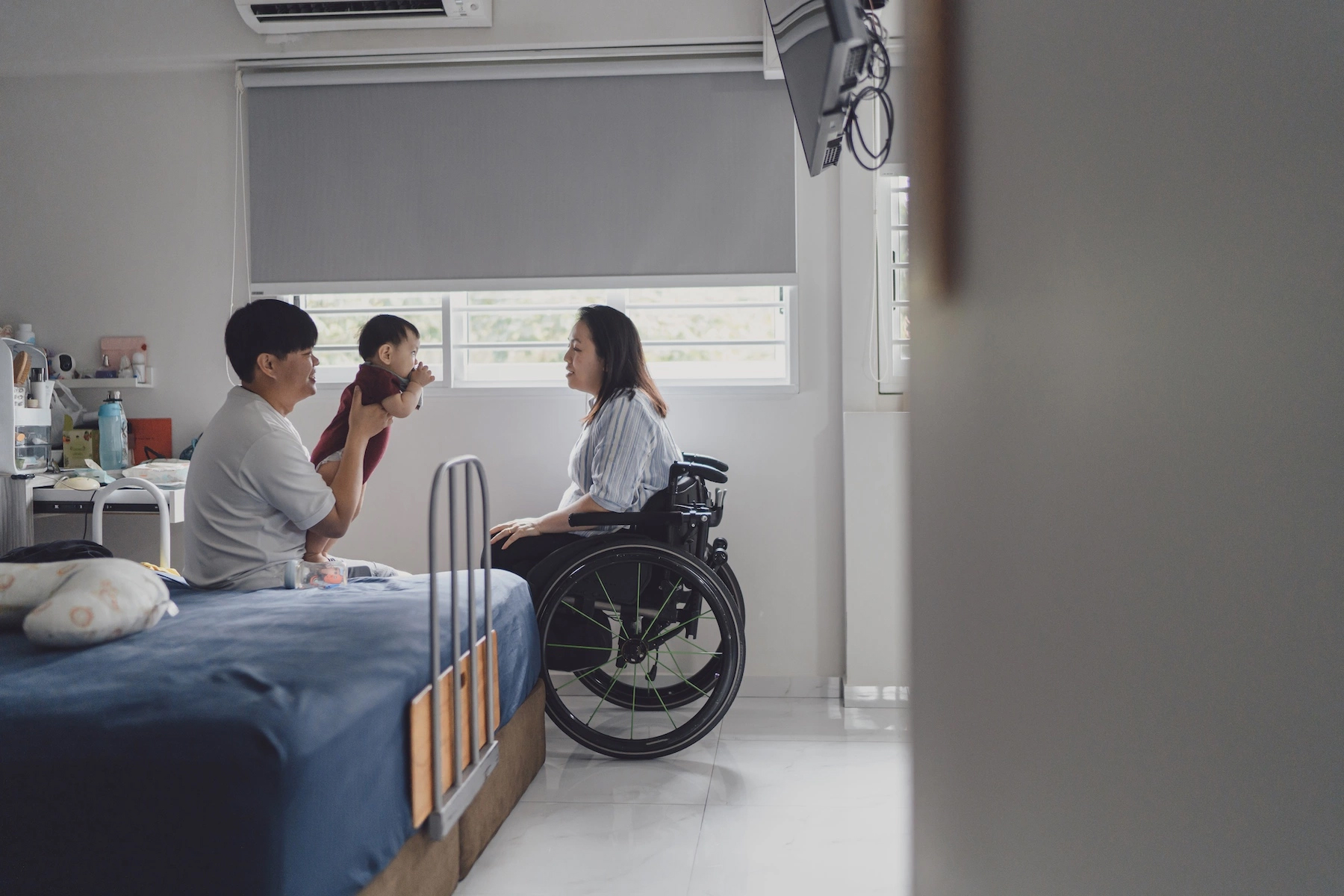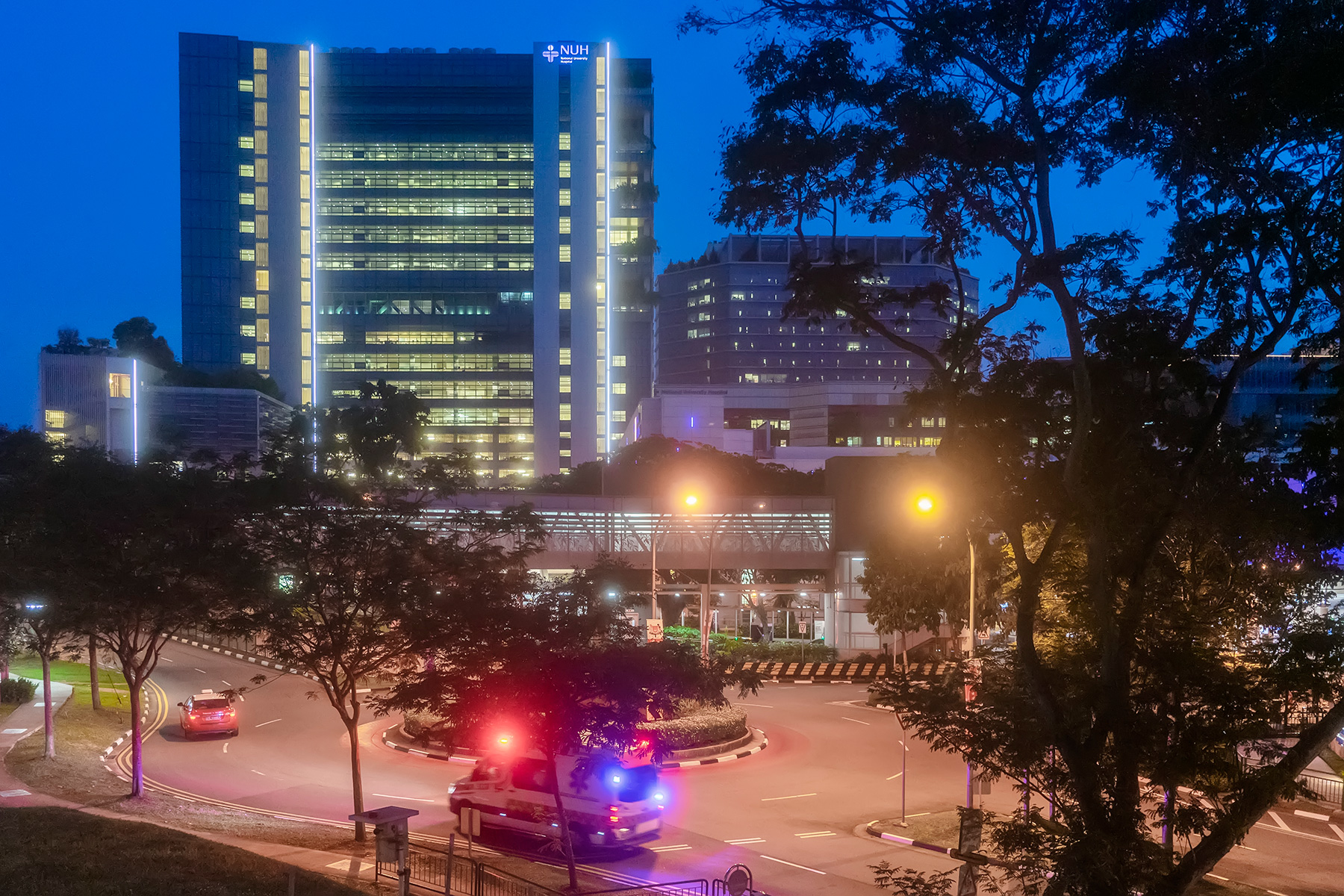Medical issues are a part of life, and newcomers to Singapore should be aware of what to do if they need to access treatment. After all, some internationals may be unfamiliar with certain risks in the country, such as heatstroke and exposure to dengue. Fortunately, Singapore’s healthcare system is one of the best in the world. Should you find yourself in need of medical care at a hospital in the Lion City, here is what you should know:
- Hospitals in Singapore
- How do you access hospital treatment in Singapore?
- How do you access emergency treatment in Singapore?
- What happens during a hospital stay?
- How much does it cost to go to hospital in Singapore?
- What happens when you are discharged from hospital in Singapore?
- Tips for visiting someone in the hospital
- Which are the best hospitals in Singapore?
- Useful resources
Allianz Care
Allianz Care is a world leader in providing international health insurance. Their various premiums provide professionally designed solutions for a variety of expat lifestyles. So, wherever your life takes you, make sure you have the right health protection for you and your family with Allianz Care.
Hospitals in Singapore
With highly experienced healthcare professionals and high-quality facilities, Singapore has one of the best healthcare systems in the world. In fact, the Lion City’s healthcare system scores very well (PDF) in many World Health Organization (WHO) and OECD indicators.

Singapore has 29 hospitals across the public, private, and non-profit sectors, as well as smaller community hospitals. Most offer a full range of services, including:
- 24-hour emergency rooms
- General health screenings
- Laboratory services
- Nutrition and dietetics
- Cancer centers
- Radiology and imaging
- Rehabilitation
In addition, all hospitals cover a full range of medical specialties, including cardiology, oncology, neurology, and gynecology.
Additionally, Singapore has two specialist hospitals. As the name suggests, KK Women’s and Children’s Hospital specializes in obstetrics, gynecology, neonatology, and pediatric services. Meanwhile, the Institute of Mental Health specializes in psychiatric care, with inpatient and outpatient services.
How do you access hospital treatment in Singapore?
Generally, internationals seek treatment at Singapore’s private hospitals. This is because public hospitals only serve citizens and permanent residents, as they are the only groups who pay for Medisave, public healthcare funded through social security.

Writer and local expert
Gayatri Bhaumik
Insider tip
Make sure to organize your health insurance in Singapore during your first days in the country.
Usually, you will need a referral from a general practitioner or other doctor to access a Singaporean hospital. You can then make an appointment online or by calling the hospital. However, many hospitals have private clinics and specialist centers where you can make an appointment directly without a referral.
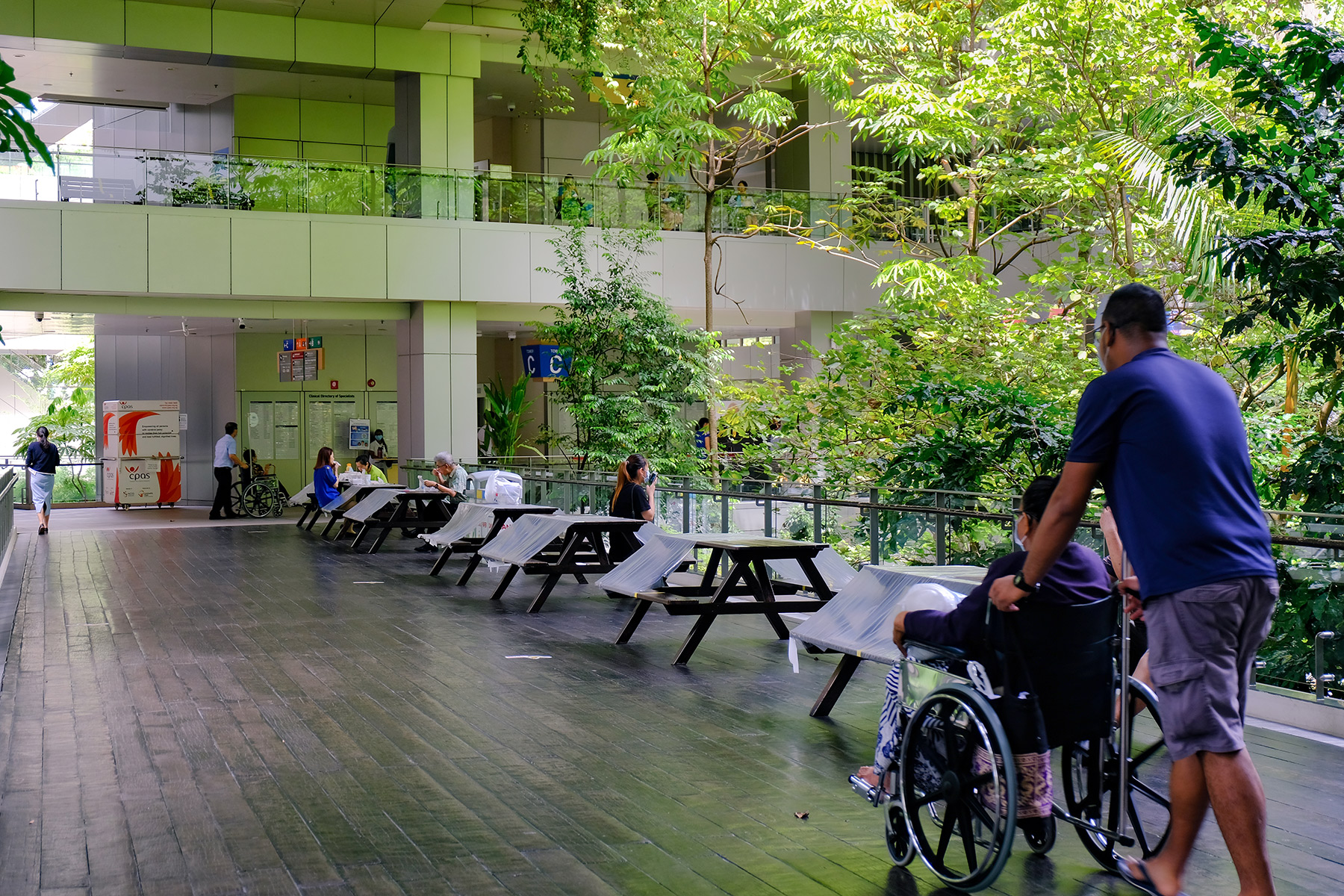
On arrival at a hospital in Singapore, you must register at the desk before your appointment. You will normally need some form of ID. If you have health insurance, you must also present your policy information.
You will also need to find out whether the hospital can bill your insurance directly, you will pay upfront and claim later, or bear the cost yourself. For hospital admissions, you will usually need to pay a deposit on the estimated costs.
How do you access emergency treatment in Singapore?
In a medical emergency in Singapore, call 995 or send a text message to 70995.
This will put you in touch with the Singapore Civil Defense Force’s emergency medical services. They can help you deal with the emergency and send an ambulance to take you to the closest hospital.
Most of Singapore’s hospitals have an emergency room, and you can usually turn up without giving prior notice. However, as with most hospitals around the world, you may have to wait a while since these operate a triage system and treat the most severe cases first.
Hospital emergency rooms treat immediate, serious medical issues that could pose a threat to the patient’s life, such as:
- Chest pain
- Excessive bleeding
- Large open wounds
- Broken bones
- Seizures
As such, they usually have a range of doctors, trauma surgeons, and other specialists on hand. In addition to the physical emergency room facilities at the hospital, there are usually 24-hour emergency helplines and ambulance services.
However, if your medical issue is not too severe, it is also possible to access emergency treatment at private clinics and medical centers across Singapore.
What happens during a hospital stay?
Your first stop for a hospital stay will be the admissions desk. Much like in other countries, each hospital in Singapore will require you to present a form of ID, a referral from your doctor, and an insurance policy.
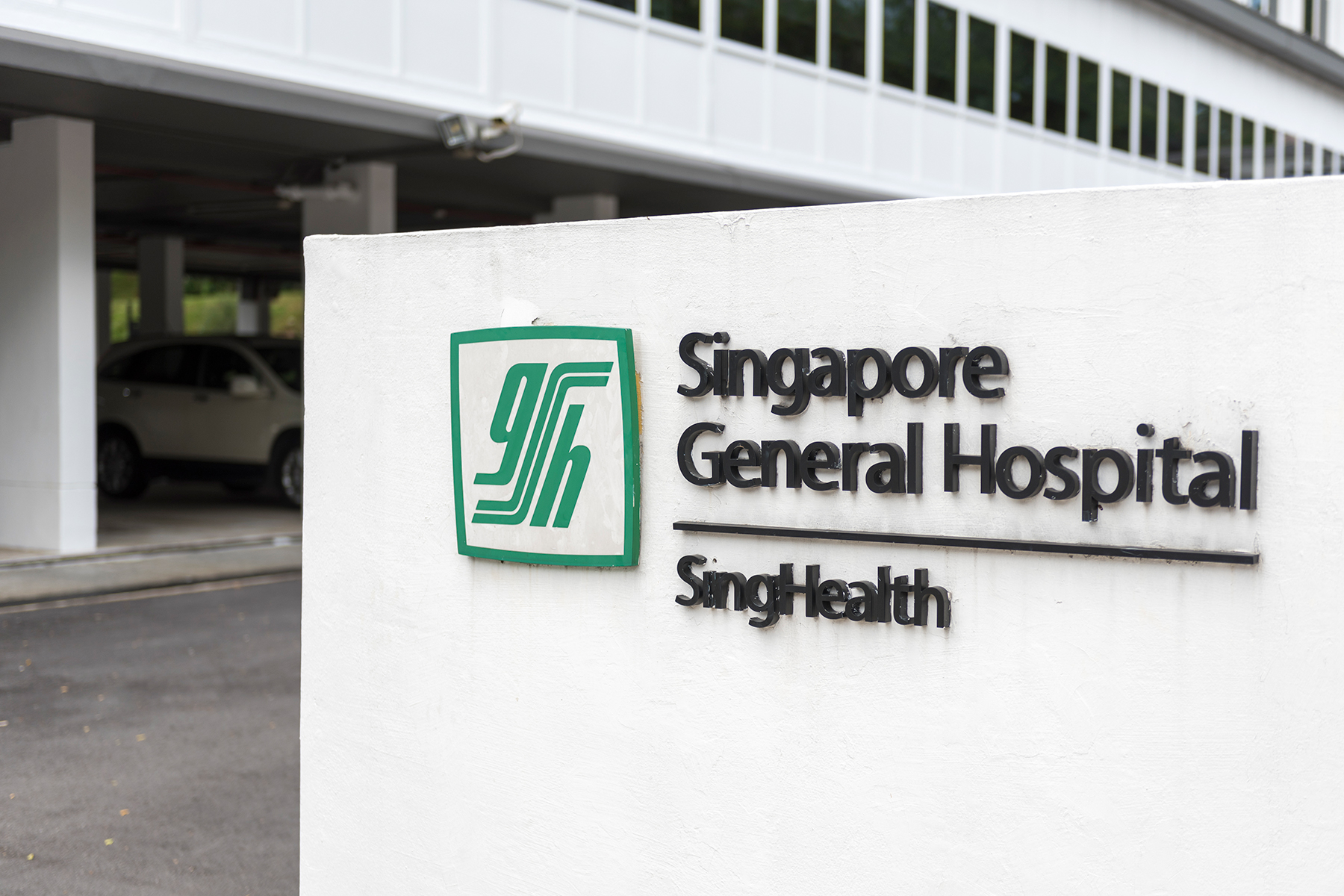
Public hospitals in Singapore offer different types of wards – at different costs, of course. There are three ward types in the public system: A (single rooms), B (4–6 beds), and C (eight beds).
Meanwhile, in the private system, accommodation is much plusher. Most rooms are singles, guaranteeing plenty of privacy. You could even compare some of them to hotels. For example, Mount Elizabeth’s slick Royal Suite comes with a guest lounge, writing desk, five gourmet meals a day, butler service, security, housekeeping, and even a bathtub in the ensuite!
Whichever hospital you visit, all rooms should be clean, comfortable, and well-kitted out.
How much does it cost to go to hospital in Singapore?
Singapore has a high cost of living, which extends to its healthcare. There are many things to factor into the price of a hospital visit or stay. For example, your bill will take into account how long you are there, how many doctors you see, laboratory or imaging services, treatment, and medicine.
Singapore’s Ministry of Health has set recommended benchmark fees for the private sector, so you can get a sense of costs.
Will my health insurance cover hospital costs?
A wide range of health insurance is available in Singapore to help expats cover private hospital costs. In general, these plans cover:
- Hospital stays in private single rooms
- Surgeries, including doctor, surgeon, and anesthesiologist fees, medicine, and treatment
- Cancer treatments and drugs
- Medical evacuation and repatriation
- Specialist consultation fees
- Transplants
- Radiology, pathology, and other diagnostic tests
- Physiotherapy and rehabilitation
- Ambulance transport
- Palliative care
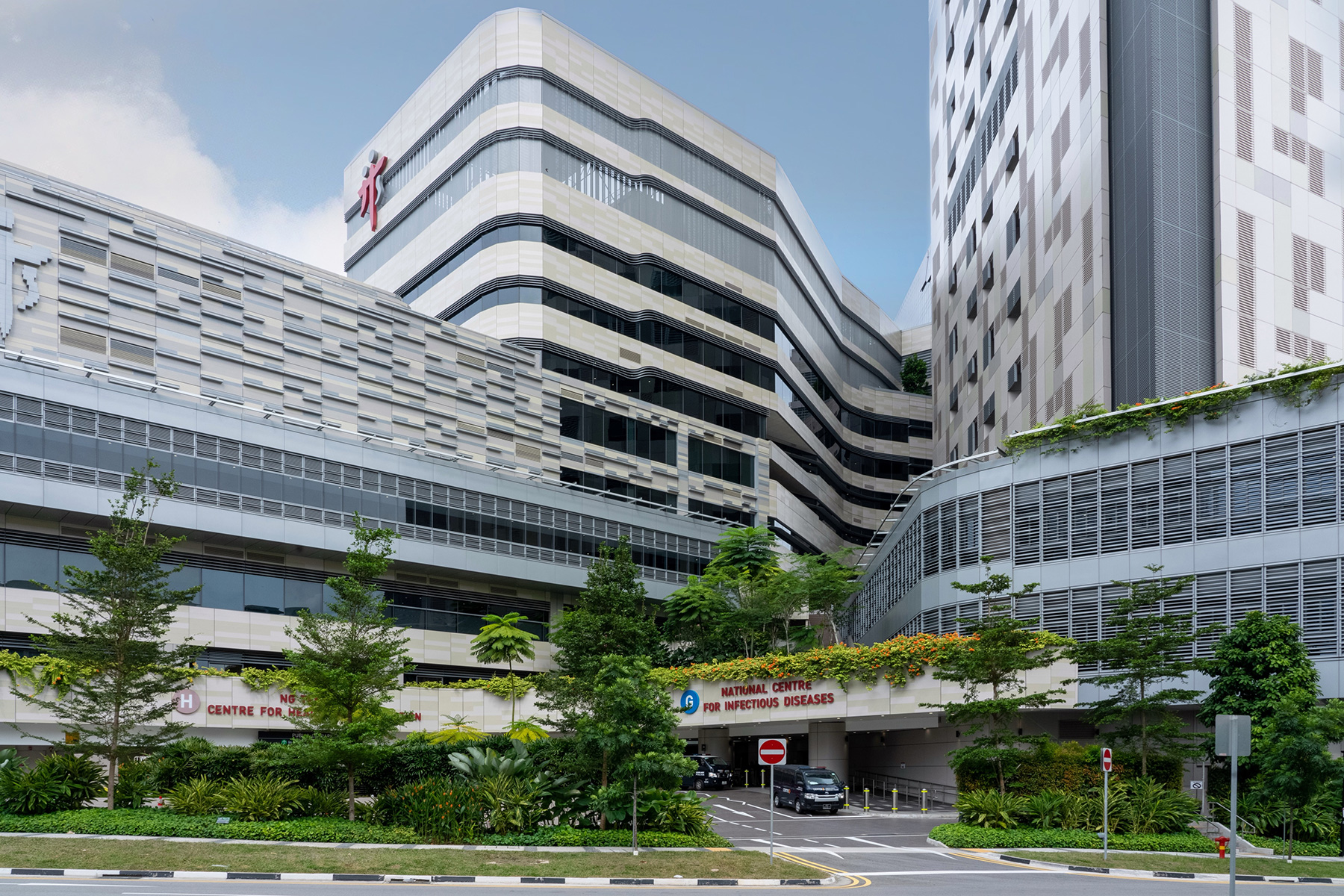
In addition, add-ons to your health insurance plan can help you to cover things like outpatient visits and dental work. Furthermore, if you plan to have a baby in Singapore, you could also add maternity coverage.
You may need to co-pay a certain amount, depending on your policy and provider. You cover the co-pay directly at the hospital, usually with your credit card. Depending on the hospital and your particular insurance policy, you may also need to pay your hospital bill in full and claim the expenses from your insurance provider. However, in some cases, you can get the hospital to bill your provider directly.
What happens when you are discharged from hospital in Singapore?
Your Singaporean hospital doctor will let you know when you can go home and initiate the discharge procedure. Depending on your exact situation and treatment, this might involve:
- Being prescribed medication and told how to take it
- Setting follow-up appointments with your doctor
- Getting referrals for further treatment, such as physio, if necessary
- Organizing medical certificates to claim sick leave from work

Of course, you will also need to take care of payment before you leave. If your insurance is covering the hospital admission, you may just need to sign a few documents and be on your way. However, if you are footing the bill or making a co-payment, you must process this through a credit card and ensure everything is settled before leaving.
Discharge times can vary. Most hospitals will discharge you before 12:00, much like a hotel, so they can turn over the room. Patients are usually advised to have a friend or relative take them home.
Tips for visiting someone in the hospital
Most public Singapore hospitals have strict visiting times. Usually, this is a few hours in the morning and a few more in the afternoon. Private hospitals, though, are more generous, so you can spend most of your day helping your relative or friend recuperate. For example, Gleneagles Hospital allows visits from 08:00–20:00.
ICU wards usually have much stricter visiting hours. For example, you might be able to call in from 13:00–14:00 and 17:30–20:00.
Usually, one or two people can visit patients at a time. You must register at the desk before you enter the ward, usually providing details such as your identification and phone number. Generally, visitors should not bring food with them. However, you can take personal items for the patient, such as toiletries and things to keep them busy like books, magazines, and small electronic devices.
Which are the best hospitals in Singapore?
While all Singapore hospitals offer high quality services and facilities, some stand out above the rest. Newsweek’s rankings of the World’s Best Hospitals 2023 put Singapore General Hospital firmly at the top of the list of local hospitals with a convincing score of 92.77%. It also ranked ninth in the world. The top five Singapore hospitals are as follows:
- Singapore General Hospital: Opened in 1821, this public hospital in Outram is Singapore’s oldest and largest. It is a teaching hospital offering a full range of medical services and includes several national specialist centers, including those for the heart, eyes, cancer, and dentistry.
- National University Hospital: Established in 1984, this is another Singapore hospital operating under the public system. One of the country’s biggest medical centers, NUH is affiliated with the National University of Singapore and functions as a clinical training and research center. Across three campuses, it offers numerous services and specialty centers for cardiology, oncology, and dentistry.
- Mount Elizabeth Hospital – Orchard: Located in the swish Orchard district, Singapore’s premier private hospital, “Mount E,” is one of the smallest in the country but offers a full scope of services. Cardiology, oncology, and neuroscience are the specialties here, and it is also a recognized multi-organ transplant hospital. It was also Singapore’s first private hospital to successfully perform open-heart surgery and create a center for nuclear medicine. This is also the place for fancy hospital digs – Brunei’s royal family created the Royal Suite, which is now available for patient use (at a price, of course!).
- Tan Tock Seng Hospital: From its central location in Novena, this public hospital – the flagship for the National Healthcare Group – offers 45 clinical departments and 16 specialty centers. Teaching operates out of the onsite Lee Kong Chian School of Medicine, while the campus also includes the National Centre for Infectious Diseases, the National Skin Centre, and the National Neuroscience Institute.
- Gleneagles Hospital: Another popular private hospital, Gleneagles is a favorite of expats thanks to its high-quality services and central location in Tanglin. The hospital offers a full range of medical services, including an emergency room, an experienced surgical team, imaging, and rehabilitation. The medical center next door also houses a host of clinics offering a host of services, including dentistry, fertility clinics, ear-nose-throat specialists, and more.
Useful resources
- Gleneagles Hospital
- HealthHub – directory of healthcare services in Singapore
- Ministry of Health Singapore – hospital bills and fee benchmarks
- Mount Elizabeth Hospital
- Newsweek World’s Best Hospitals 2023: Singapore – hospital rankings by Newsweek
- Room facilities at Raffles Hospital


